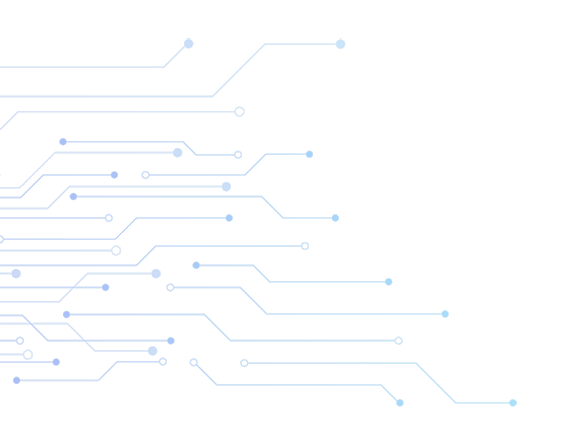
This project has received funding from the European Union’s Horizon 2020 research and innovation programme under grant agreement No. 861960


New sustainable and recyclable catalytic materials for proton exchange membrane electrolysers.
RECYCALYSE will disrupt the energy storage market through the development and manufacture of highly active sustainable oxygen evolution catalysts, and through a recycling scheme for membrane electrolysers catalysts, electrodes, and overall system. This technology will help to reduce or eliminate the use of Critical Raw Materials (CRMs), thus decreasing CO2 emissions and reducing costs.

This project has received funding from the European Union’s Horizon 2020 research and innovation programme under grant agreement No. 861960
Dispatchable concentrated Solar-to-X energy solution for high penetration of renewable energy
SOLARX is a 3-year project funded by the European Commission’s Horizon Europe research & innovation programme. It addresses the shortcomings of current energy infrastructures that are not designed to handle large shares of intermittent renewable energy sources. SOLARX integrates three high concentration solar technologies and AI-based smart resource management into a dispatchable Renewable Energy System (RES). To this end, SOLARX will develop 3 Key Technological Elements: a smart solar resource management algorithm which aims to meet local instantaneous energy demands, a high efficiency Concentrating Photovoltaic (CPV) receiver and a carbon negative bi-energy H2 receiver. The main goal of the project is to demonstrate, at the laboratory scale, the technical, economic, and social value of the synergetic efficient production of heat, electricity and H2 from solar resource in a single facility, considering energy demands and market prices for a wide range of locations and application scenarios.

This project has received funding from the European Union’s Horizon Europe research and innovation programme under grant agreement No. 101084158
Metal Organic Frameworks for Hydrogen production by photocatalytic overall water splitting.
MOF2H2 main ambition is to reach a world-record efficiency for sun-driven clean hydrogen production of 5% solar-to-hydrogen efficiency, using metal-organic frameworks (MOFs) as photocatalysts (through photo-dissociation of water). To this end, the project will synthesise and optimise several generations of MOFs and related composites. Its final goal is to optimise and upscale the best materials and prototypes under sustainable and economically viable conditions.

This project has received funding from the European Union’s Horizon Europe research and innovation programme under grant agreement No. 1010841031
HIghly efficient POwer production by green Ammonia total oxidation in a membrane Reactor
In HiPowAR, a new membrane reactor is being developed for efficient energy production from ammonia. The project focuses on a breakthrough in the direct conversion of ammonia into energy. This is driving the acceptance of ammonia as a synthetic fuel without CO2 emissions. The membrane reactor developed is based on a MIEC (Mixed Ionic Electronic Conductor) membrane and achieves higher efficiencies in energy production than internal combustion engines and steam generators.

This project has received funding from the European Union’s Horizon 2020 research and innovation programme under grant agreement No. 951880
Hydrogen Storage and TRansport using Ammonia
HySTrAm builds on developing physical H2 storage materials, enabling short term storage (buffering renewables dynamics), as well as the three structural corner stones of flexible low pressure NH3: decreased Ru content catalysts, high temperature NH3 sorbents and induction-heated support granting (optimal) responsiveness. The project will demonstrate a compact containerised ammonia synthesis system which is based on two main consecutive stages: 1) A short-term storage hydrogen vessel which will serve as a buffer to store and transport the hydrogen produced by electrolysis. Within the hydrogen vessel, new ultraporous material will be identified and optimised through machine learning technology 2) An ammonia synthesis reactor based on an improved the Haber-Bosch process where the stored hydrogen will react with nitrogen to form ammonia using the novel catalysts and sorbents developed in HySTrAm.

This project has received funding from the European Union’s Horizon Europe research and innovation programme under grant agreement No. 101058643
Wind and water to ammonia – Marine fuel and energy storage for a zero-emission future
The main aim of the CAMPFIRE flagship project is to increase the R&D of new energy conversion and storage technologies for the future energy system based on green ammonia. CAMPFIRE a consortium alliance in the German north-east region but also aiming to engage future energy management and transport based on green ammonia and a carbon-free, secure energy supply will be possible in the Baltic Sea region, in Europe and overseas.


This regional project has received funding from the WIR! – Change through innovation in the region” of the Federal Ministry of Education and Research (BMBF) programme.

Novel Routes and Catalysts for synthesis of Ammonia as alternative renewable fuel
The ORACLE project is focused on innovative solutions for decentralised ammonia production. Here they work on new catalysts and concepts of decentralised production of ammonia as an alternative renewable fuel. Approaches are: 1) electrified thermal catalytic systems, 2) employing plasma-aided electrocatalytic system and 3) electrocatalytic systems. The electrocatalysis parts are done in collaboration with two Japanese partners.
For more information, you can visit their website: https://oracle-jp.eu/.

This project has received funding from the European Union’s Horizon 2020 research and innovation programme under grant agreement No 101022738.